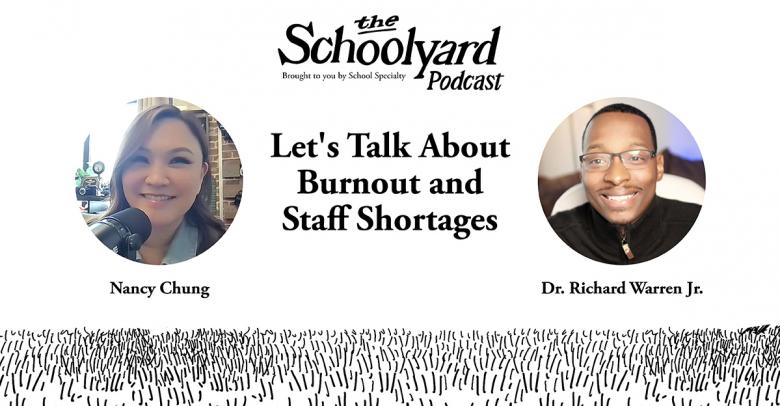We are about 3 weeks in to the thick of this COVID-19 crisis and you are probably still trying to figure out things such as what’s going on in the world, and how to get your work done from home while also trying to ensure that your students are continuing their learning process. Additionally, if you have your own children, you may also be consumed with managing their learning as well ensuring the safety of your family. I am sure that your list of concerns is expansive, as those are just a few. So, you may have heard things like it’s important to maintain a routine and stick to a schedule. While this is good advice, we are no longer doing business as usual and no one knows what to expect; this means that you will need to adjust to this new world and be prepared for any shifts, changes, and challenges. And yes, while routines and schedules are helpful for yourself and your children, it can create strong emotional expressions if the way you handle these routines are strict and inflexible. I would like to take this time to provide you with a more mindful way of maintaining structure within your home and work. Let’s have an AHAA moment, shall we?
Awareness
Take some time and make a list of all of the demands on your time and energy within this new world. Ask yourself why you may be attached to a certain activity or habit, and what’s the worst that could happen if you changed it. Really assess and acknowledge your strengths and areas of concern. Also pay attention to your children’s strengths and learning styles and how you might adjust your home space so that it suits their learning needs. Recognize those things that you all may be resistant to at this time. Notice how you and others in your home have been managing strong feelings such as anger, frustration, irritability, disappointment, hopelessness, cynicism, guilt, and shame. Is it healthy or unhealthy?
Harmony
Earlier, I asked you to make a list of all of the demands on your time and energy, and now I want you to think about how you could give each of these demands the same amount of time and energy…what do you envision happening? If you cannot give them all the same amount of time, what do you have to give up? That’s difficult, right? There are lots of things on your plate, and it’s commonly stated that you must be able to balance it all. Well, I say that balance is not the way. It is better to focus on harmony. Harmony is different from balance because it promotes quality over quantity, and it allows for flexibility. Balance suggests that all things are equal and deserve/require the same amount of time and energy. That is not feasible and can contribute to continued distress and anxiety. For example, think about music. If all instruments played at the same level with the same intensity, it would not sound beautiful. Each instrument knows how to fit with the other sounds. That’s what you will need to do in this process. Focus on how you can bring harmony to your life by being in the moment and being attuned to doing what’s best and what’s needed. With harmony, you focus on the quality of time you invest in something, not the amount of time. If that means you only get 15 minutes of family time, make that the best 15 minutes by giving it all of your attention. Most importantly, make sure you are able to find something pleasurable about everything you do.
Acceptance
You must look introspectively at your life and decide what’s important enough to have your attention and take action to do that well. Loosen your attachment on what was or what you think should be happening and recognize that you can only control yourself. Have at-home meetings with everyone expressing that it’s okay to feel these strong emotions mentioned above and make a plan to allow healthy ways for everyone to discuss their feelings and to give feedback. Do this all with a non-judgmental tone.
Action
When navigating this new way of life or if you want to have a routine, start your day with an exercise at the beginning of your day. Close your eyes, take several deep breaths, and ask yourself, “What is my intention today?” Make sure you take breathing breaks throughout the day and check in with yourself about your intentions and adjust as needed. Throughout the day:
- Concentrate on what’s in front of you
- Ask for help, if needed
- Minimize distractions
- Control your mind
- Renew your daily purpose, as needed
- Review your daily activity
- Allow for mistakes
- Be flexible
- Have compassion for everyone in the house; this is new to you all
- Forgive yourself, forgive others
And at the end of your day, close your eyes, take several long breaths, and ask yourself, “What are 3 things I did today that went well? What can I put down? What am I ready to be done with?” and “What don’t I need to carry with me for another day?” Let tomorrow be a new day!
Tenelle O. Jones
Tenelle O. Jones is licensed as a Marriage & Family Therapist (LMFT) and licensed as an Addictions Counselor (LAC). She currently works full-time at MUSC’s National Crime Victims’ Research & Treatment Center as a Human Service Coordinator II. For the past 23 years, her professional & personal life have been centered around promoting overall mental, physical, and spiritual health of all communities.
Read more by Tenelle O. Jones–>







Leave a Reply